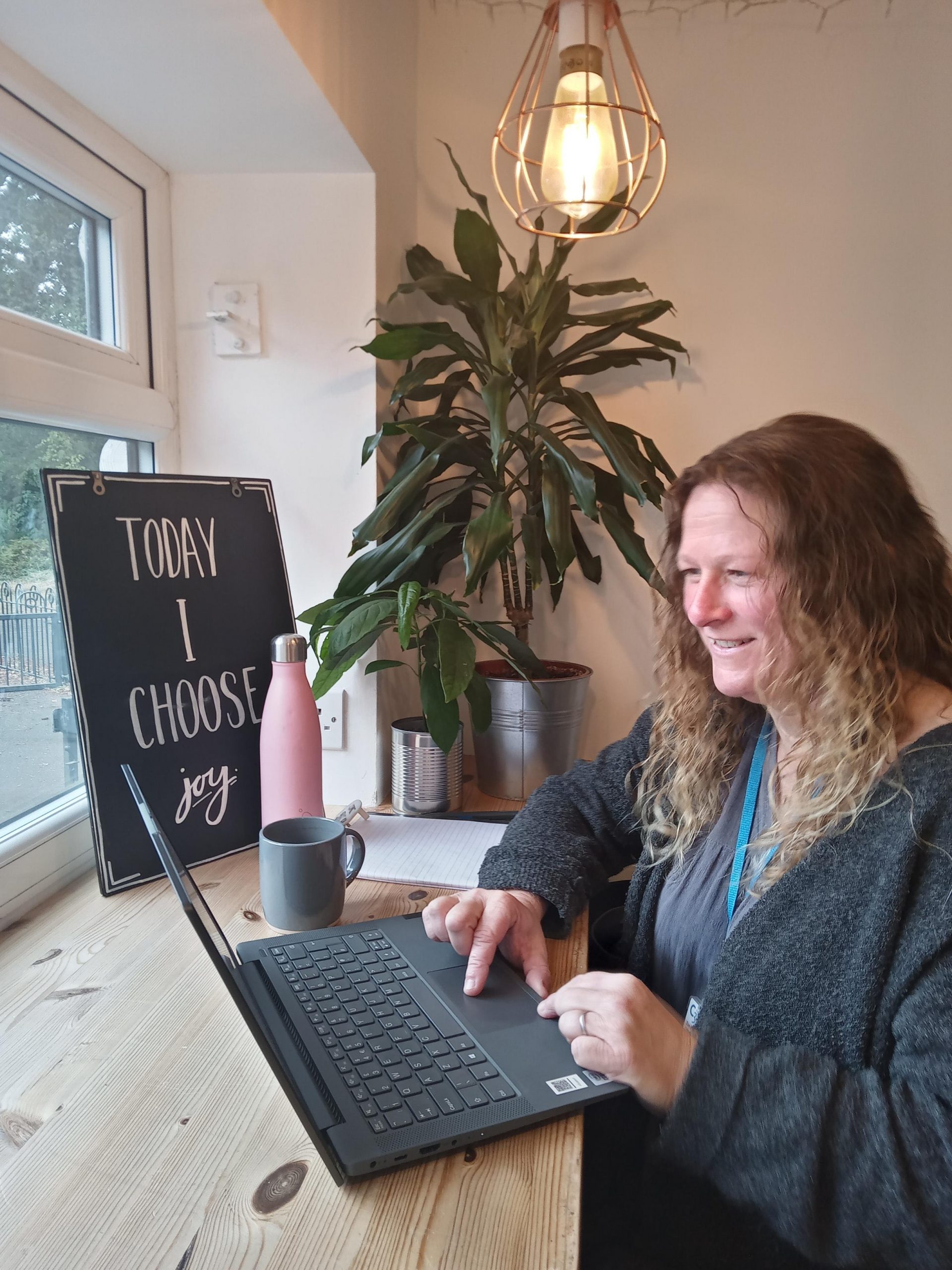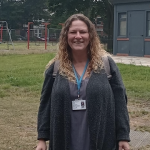What’s the secret to effective community engagement?
Community engagement – the idea of working collaboratively with groups of people united by an interest, issue or situation, to address matters affecting them – is a term applied to all kinds of scenarios. It’s as much a part of politics as it is a part of environmental activism, social justice campaigning and indeed, it has been a crucial element of peacebuilding in areas recovering from conflict such as Northern Ireland.
But how does one go about engaging a community? How do you build the trust, the sense of shared purpose, the drive, that gets members of a community, diverse almost by definition, on your side? To find out, we sat down with Zoe Keeping, our CHESS Plan Co-ordinator in Boscombe who is working with community members to deliver the actions they had identified as priorities as part of the CHESS project. Boscombe is one of the 7 areas in the ASPIRE project.
What background did you bring to this role in Boscombe?
I’ve lived and worked in Boscombe for over twenty years so I’m a firm part of the local community. I started my career in a local authority working in housing, before moving into the voluntary sector working around homelessness. That’s formed a large chunk of my career, actually, working in housing and homelessness but within that, my experience has been quite diverse. I’ve worked in everything from mortgage repossessions, to working in prisons with offenders, to working with street homeless people – it’s been very diverse in terms of working with different members of the community. First and foremost, though, I’ve always worked with people.
Which must be key…
It really is, because the work we’re doing in Boscombe is around making spaces and activities accessible for people. Even when I’ve been employed in homeless charities, I’ve also often been doing volunteer work to bring services to people who need them. That might sound funny, but a lot of services aren’t accessed by the people who need them so I would often work on bringing those services to say, local parks, or other places where people who need them are likely to be.
This seems to go back to what you said when you introduced yourself: that you’re a firm part of the community – is this work what you were referring to when you said that?
Yes, exactly. I’ve always had a thing for helping people, supporting people and living right in Boscombe in the thick of it, it’s hard to ignore the problems around you! So even when I haven’t been working for homeless charities, I’ve still been involved in providing for the vulnerable, unhoused communities around us.
Not everyone engages with their community in that way, do they?
No, some people may live and work in an area, but they may not actually spend a lot of time with the community, whereas I’ve been more inclined to, and especially with my children… I mean, with Churchill Gardens, where the ASPIRE project is taking place: I’ve spent more time there than I care to remember! [laughter] Because since my children have been little, it was on the way to pre-school, it’s a place where I’ve always kind of been and it’s a focal point for the community. So, when you’re there, you see so many people and you become a known face and people connect with you. It makes you quite visible. So when you’re out and about you get to know people’s faces and people get to know you.

That leads on to the main question of the interview which is how does one engage with a community – what are the main pieces of advice you would give?
I definitely think it’s about building trust before anything else. The fact is that, if I could, I would do this job voluntarily. I would do it for free. One challenge though, is that when you’re being paid by an organisation to work with people, you’re often walking a fine line because people can be inclined to think that you’re not genuinely interested. And it’s important to work hard to let them know you have a similar experience to them, that you know where they’re coming from, that you share the same frustrations as them. That honesty is important. When things aren’t going quite right or are causing upset or frustration, it’s vital that you built trust by showing them you understand the issues they’re facing.
What else?
Well, what I was saying there about honesty feeds into being visible again. For example, I find that if you call a meeting, people often won’t turn up, or one person will turn up and you’ll end up feeling frustrated by what you might conclude is a lack of interest. But then the next day, I’ll go to work in Churchill Gardens, and I’ll end up having the most successful community engagement ever because everyone will want to know what happened at the meeting and I’ll say ‘well, nothing!’ but through the conversations I have with them throughout the day I can work out what everyone feels about whatever it was we were going to discuss at the meeting anyway. This avoids something that I think people often miss with community engagement is that they might have a set meeting at a set time, and three people will turn up, and because those three people have turned up, it’s their opinions and desires that end up being listened to when theirs might not reflect the desires of the community as a whole. That in turn can lead to a lot of wasted time, at best. At worst, it can lead to bad feeling. But some of the most positive days I’ve had in this job have even been on days when I haven’t been working but I’ve just gone to Churchill Gardens with my children and met community members while I was there. And because they see that you’re there, that you’re part of their community, and that you have an interest in helping, that builds commitment and enthusiasm on their side.
So, do you think then that it’s really essential to meet people where they are, not where you’d like them to be?
Yeah. That, and trust. Because people will often see that there’s a public meeting, a consultation, a community engagement meeting, whatever term you want to use, and they’ll be very cynical. They think this is just an exercise being run so that a box can be ticked saying ‘the local community has been consulted’. They don’t think they’ll be listened to. And often, they’re right, there are plenty of people in Boscombe who have stories of going to such meetings, saying what they thought but then the original plan that was proposed before the meeting happened anyway.
Are consultations, as we know them, no longer fit for purpose then?
We need to change the way we look at consultation and engagement. For me, consultation is very ad hoc, it’ll be me closing my laptop because somebody’s just walked into the café and wants to discuss something, listening to them and saying ‘right, we can actually do something about this right now’. And in fact, following from that, one of the most rewarding facets of my job is watching people gradually change. Going from identifying problems to saying ‘well, we can be part of the solution here’. That’s really evident in Churchill Gardens, where I’ve had people come up to me in the middle of the day, and they might even have been drinking, they may not be an “acceptable” voice, but they’ll approach me with actually very rational suggestions like ‘the noticeboard isn’t visible enough’ and they’ll be right. But those interactions don’t happen if you’re not ready for them. It can’t just be a case of saying ‘sorry I’m busy working’ and then carrying on with whatever you were doing on your laptop. It’s about being reactive and being seen as somebody who will go with people’s ideas and run with them. They’re not used to that and it’s impressive when they see it. It gives them the confidence to do things themselves.
That’s important for continuity…
It is. And we can’t forget that, while this project has a specific goal, around health, obesity, unemployment, I have to think of the daily stressors that community members are already dealing with, and those are blocking people from participating. Often, institutions and charities will enter a space, with a grand idea which will be well-funded. And it may be a success, but what’s actually stressing people out is that the bins aren’t being collected, or the litter problem in the street and it’s up to us to say ‘well, we’ll help you deal with those as well!’ – it really is about being on the ground and responsive.
That does sound like a familiar tale, alright, where institutions come along with a Big Idea but don’t really engage with the community they’re helping.
I read a book recently by Darren McGarvey called Poverty Safari and in it, I think there was a reference to a community centre. And what people needed from this centre was just somewhere to go, and to be, somewhere to go for a chat and a cup of tea and so on. But that idea doesn’t attract funding. In poor areas, people might just need something as simple as that, a place to go and be because people have limited or no access to safe spaces like that. But that’s often not grand enough or big enough to attract funders or politicians. And so what ends up being provided in this instance is something which in no way meets the needs of the local community, isn’t accessed by the local community, and ends up serving the needs of people from outside of that area, meaning that the people originally being ‘helped’ end up being even more excluded.
That really struck a chord with me because I’ve seen that many times. Where a big idea doesn’t meet the most fundamental needs of the people it’s supposed to help. With ASPIRE, we’re working to deal with the issues of obesity and unemployment. But some of the most effective stuff we may end up providing will include something as simple as providing a space for people to relax a bit and forget about their considerable troubles. Engage with their community and the people around them. That’s what I’m trying to do with my work – the big stuff and the little stuff at the same time.
And do you often find that your work with ASPIRE ends up leading to situations where you’re the conduit for conversations about things like, you mentioned the bins, or other issues that are community-wide concerns.
Yes of course, I mean I don’t like the word holistic but in community engagement you have to be because you’re dealing with people and it’s people’s lives, and a lot of people who we’re working with in the local area don’t have other support networks so you become the person who’s dealing with those other problems. At the moment, one of the biggest issues is children and young people because there are no youth services in the local area so – even though ASPIRE is in no way aimed at children and young people – I got a call from a resident in the evening last week because a bunch of children had smashed the lock on the standpipe and were flooding the park with water and were ripping up the plants. So, I went over to deal with that but then the next evening, I thought I might pre-emptively by going over with some play equipment and spent an hour getting nineteen children to play rounders, football, all these things. And I reached an agreement with them that if I could provide play activities for them in the evenings, then they’d leave the planters alone. Technically it’s way outside of the remit of my job but it’s about addressing the issues of the community as a whole. Because without addressing the needs of those people and young people, who are coming from complex family backgrounds, they’re not in the park with adults, they’re there with siblings, no youth service support, no play equipment, nothing. Without addressing their needs then there’s little chance of success elsewhere.
That sounds like an awful lot of commitment.
Well, this is the thing – I see myself as part of this community so the night we went down to bring play equipment for the children, my kids came with me. The night that I had to go down and fix the lock on the standpipe, my family came with me and my husband helped me fix it. The lines are blurred a little and that can be helpful as people will then see me not as somebody just paid to do the work of ASPIRE, but as somebody who also considers as rooted in the community and in their concerns.
To follow the work that Zoe & Co. are doing in Boscombe, follow them on Twitter @C3inBoscombe.

